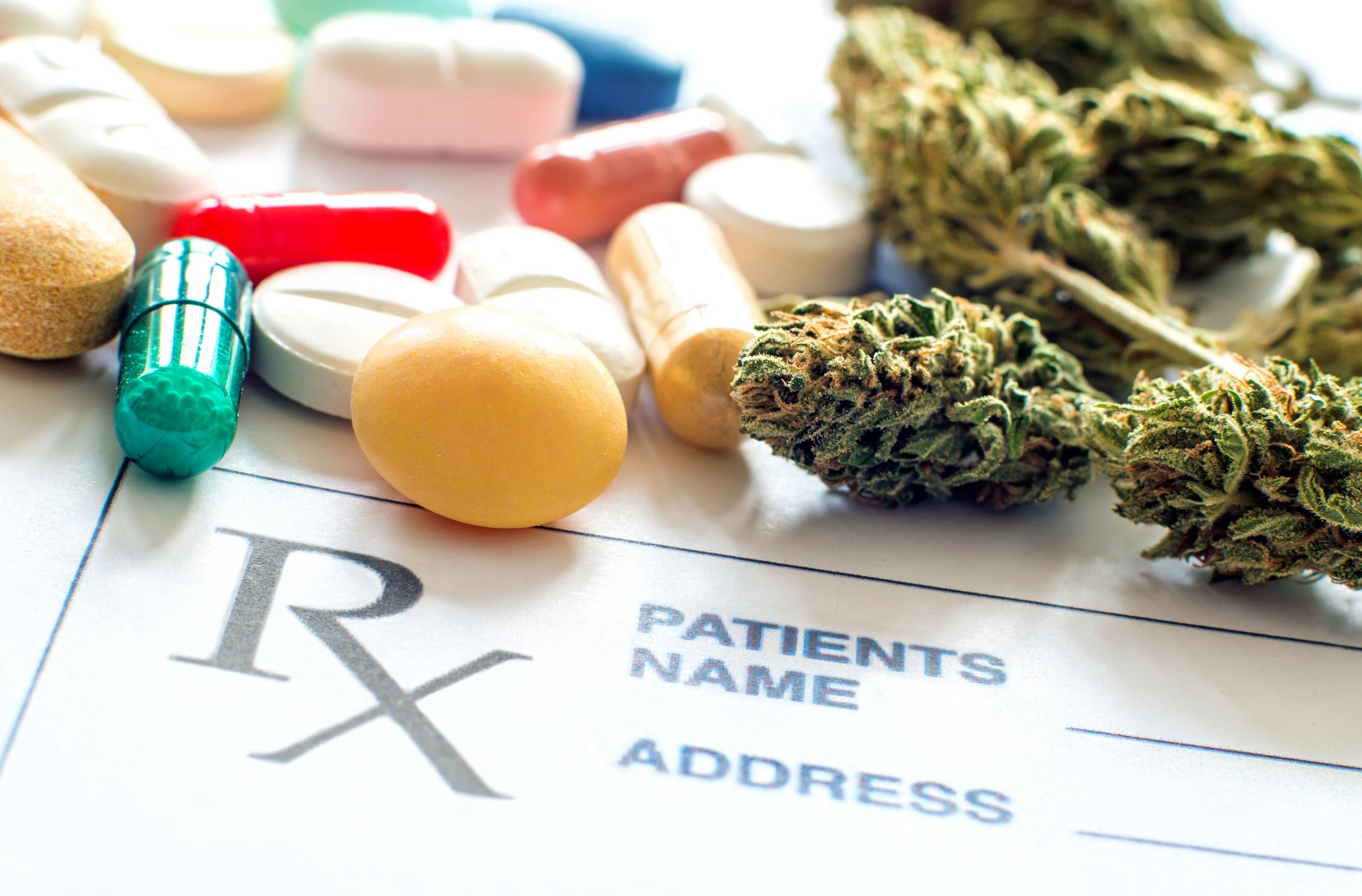Medical marijuana has become a popular option for managing various health conditions, including chronic pain, anxiety, and nausea. However, as with any treatment, it’s important to consider how it might interact with other medications you may be taking. Understanding these interactions is crucial for ensuring safety and effectiveness.

Understanding Drug Interactions
Drug interactions occur when one substance affects the activity of another when both are taken together. These interactions can alter how a medication works, potentially reducing its effectiveness or increasing the risk of side effects. Medical marijuana, which contains cannabinoids like THC and CBD, can interact with other medications in various ways. Cannabinoids are metabolized in the liver by enzymes that also process many other drugs. This can lead to increased levels of either the cannabinoids or the other drugs in your bloodstream.
Potential Interactions to Be Aware Of
Cannabis can interact with any kind of medication, but these are some of the more common interactions you’ll want to be aware of:
- Blood Thinners: Medical marijuana, particularly CBD, can increase the effects of blood thinners. This can lead to an increased risk of bleeding. It’s essential to monitor blood levels and adjust dosages accordingly under the guidance of a healthcare provider.
- Antidepressants: Some antidepressants are metabolized by the same liver enzymes affected by cannabinoids. Combining these medications with medical marijuana can alter the effectiveness of the antidepressants or increase side effects like drowsiness or dizziness.
- Antiepileptic Drugs: There is evidence that CBD can increase blood levels of antiepileptic medications, which could potentially lead to more pronounced side effects or toxicity. For patients using medical marijuana for seizure control, this interaction is particularly important.
- Opioids: Combining medical marijuana with opioids can be complex. While some studies suggest that medical marijuana may help reduce opioid use and improve pain management, there is also a risk of increased sedation or respiratory depression when used together. It’s crucial to consult with a healthcare provider to safely manage dosages.
Tips for Safe Use
If you’re considering medical marijuana alongside other medications, it’s vital to approach this decision with caution and open communication with your healthcare provider. Here are some tips:
- Consult Your Doctor: Always discuss your intention to use medical marijuana with your healthcare provider. They can help you understand potential interactions and adjust your medication regimen if necessary.
- Start Low and Go Slow: If your doctor gives the green light, start with a low dose of medical marijuana and gradually increase it. This approach helps minimize potential side effects and interactions.
- Monitor Your Symptoms: Keep a close eye on how you feel and any changes in your symptoms. This includes any side effects from your other medications, as these could indicate an interaction.
Consult With a Professional Medical Cannabis Company
While medical marijuana can be a valuable addition to many treatment plans, it’s essential to use it wisely, especially when other medications are involved. By staying informed and working closely with healthcare professionals, patients can safely explore the benefits of medical marijuana without compromising their overall health. If you’re interested in learning more about how medical cannabis will interact with the existing medications you take, reach out to us at CannaLeaf Health.

